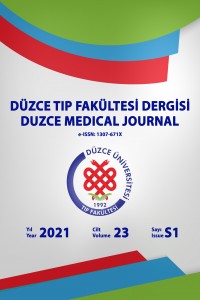Abstract
The traditional view, of a linear relationship between the development levels of countries and their ability to deal with problems has been completely changed with the coronavirus disease 2019 (COVID-19) pandemic. The countries hit hardest by the pandemic have been the so called developed ones of Western Europe and the USA. Equating development to mega cities has been shown to be misplaced. The pandemic has spread fastest in crowded cities such as New York and Los Angeles. Aside from overpopulated cities, ignoring the environment and the need for healthy living conditions are other important reasons for their failure to control the epidemic. Yet, countries such as Taiwan, South Korea and Japan have had very low infection rates relatively, even though most of their populations live in large urban centers. The difference may be due to the extensive practice of using face masks in these countries. The need to emphasize and rely on science and technology to solve the problems of humankind is among the key lessons that the pandemic has taught us. A final lesson the virus has taught us, is that regardless of which country we live in, our well-being and destinies are closely indeed intertwined. A health care crisis anywhere in the world can affect us all and very quickly too.
Keywords
References
- iif.com [Internet]. Institute of International Finance. Upcoming Events. [Cited: 2021 Feb 3]. Available from: https://www.iif.com/Events/Upcoming-Events.
- imf.org [Internet]. International Monetary Fund. The IMF and COVID-19 (Coronavirus). [Cited: 2021 Feb 3]. Available from: https://www.imf.org/en/Topics/ imf-and-covid19.
- worldbank.org [Internet]. The World Bank. The World Bank Group’s Response to the COVID-19 (coronavirus) Pandemic. [Cited: 2021 Feb 3]. Available from: https://www.worldbank.org/en/who-we-are/news/coronavirus-covid19.
- ourworldindata.org [Internet]. Our World in Data. Coronavirus (COVID-19) Vaccinations. [Cited: 2021 Feb 3]. Available from: https://ourworldindata.org/ covid-vaccinations.
- cdc.gov [Internet]. Centers for Disease Control and Prevention. COVID-19 Vaccine: Helps protect you from getting COVID-19. [Cited: 2021 Feb 3]. Available from: https://www.cdc.gov/coronavirus/ 2019-ncov/vaccines/index.html.
Abstract
Koronavirüs hastalığı 2019 (coronavirus disease 2019, COVID-19) pandemisi ile birlikte, ülkelerin gelişmişlik düzeyleri ile karşılaştıkları sorunlarla baş etme konusundaki performansları arasında doğrusal bir ilişki kuran geleneksel bakış kökten değişmiştir. Beklenilenin aksine, pandemiden en fazla etkilenen ülkeler Batı Avrupa ülkeleri ile ABD gibi gelişmiş ülkeler olmuşlardır. Mega kentlerde de benzer olumsuz tablo görülmüş, pandemi New York ve Los Angeles gibi büyük kentlerde en yüksek yayılma düzeyine sahip olmuştur. Kentlerin aşırı nüfuslu olmaları bir yana, kaliteli çevre ve yaşam koşullarının büyük kentlerde ihmal edilmesi bu kentlerde hastalığın yayılım hızının daha yüksek olmasına yol açan diğer faktörler olmuştur. Öte yandan, Tayvan, Güney Kore ve Japonya gibi ülkelerin yüksek nüfusa sahip olan kentlerinde, diğer gelişmiş ülkelerin büyük kentlerinde hastalığın hızlı yayılım sorunu gözlenmemiştir. Bu farklılık, bu ülkelerde toplumun temizlik ve maske kullanımı kurallarına uyma konusunda çok daha yüksek hassasiyet göstermesi ile ilgili olabilir. Modern zamanlarda akla gelmeyecek olan bu pandeminin bizlere öğrettiği en önemli konulardan birisi hiç kuşkusu insanoğlunun karşılaştığı bu sorunlara karşı bilim ve teknolojinin bu sorunlarla mücadelede hayati öneme sahip olduğudur. Virüsün öğrettiği bir diğer şey de ne düzeyde gelişmiş bir ülkede yaşadığımıza bağlı olmaksızın sağlık yönünden iyi durumda olmak ve kaderin birbirinden bağımsız olmadığıdır. Ayrıca, dünyanın bir köşesinde yaşanan bir sağlık sorununun aslında dünyanın geri kalan tamamını da ilgilendirmesi gereken bir sorun olduğu bu sağlık krizi ile tescillenmiştir.
Keywords
References
- iif.com [Internet]. Institute of International Finance. Upcoming Events. [Cited: 2021 Feb 3]. Available from: https://www.iif.com/Events/Upcoming-Events.
- imf.org [Internet]. International Monetary Fund. The IMF and COVID-19 (Coronavirus). [Cited: 2021 Feb 3]. Available from: https://www.imf.org/en/Topics/ imf-and-covid19.
- worldbank.org [Internet]. The World Bank. The World Bank Group’s Response to the COVID-19 (coronavirus) Pandemic. [Cited: 2021 Feb 3]. Available from: https://www.worldbank.org/en/who-we-are/news/coronavirus-covid19.
- ourworldindata.org [Internet]. Our World in Data. Coronavirus (COVID-19) Vaccinations. [Cited: 2021 Feb 3]. Available from: https://ourworldindata.org/ covid-vaccinations.
- cdc.gov [Internet]. Centers for Disease Control and Prevention. COVID-19 Vaccine: Helps protect you from getting COVID-19. [Cited: 2021 Feb 3]. Available from: https://www.cdc.gov/coronavirus/ 2019-ncov/vaccines/index.html.
Details
| Primary Language | English |
|---|---|
| Subjects | Clinical Sciences |
| Journal Section | Invited Review |
| Authors | |
| Publication Date | March 30, 2021 |
| Submission Date | January 15, 2021 |
| Published in Issue | Year 2021 Volume: 23 Issue: Special Issue |
Cite
Cited By
Policy issues on covid-19 waste: comparing Indonesia and Taiwan
IOP Conference Series: Earth and Environmental Science
https://doi.org/10.1088/1755-1315/905/1/012113

Duzce Medical Journal is licensed under a Creative Commons Attribution-NonCommercial-NoDerivatives 4.0 International License.

